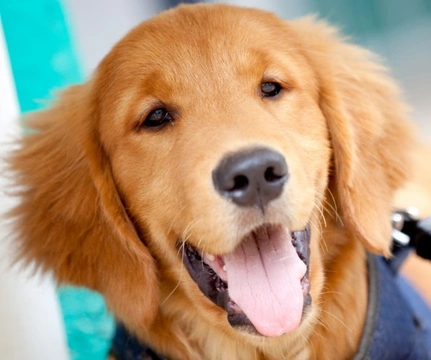
How to tackle a dog that urinates submissively or when excited
Even dogs that are housetrained may have the occasional toileting incident or near miss, and two of the most common reasons for this are urination through fear as a show of submission, or due to excitement. Both of these can be classed as a behavioural problem rather than a medical one, although it is wise to get your dog checked out by your vet to see if there is an underlying reason before moving forwards.
So, if your dog is apt to urinate submissively on occasion when there is no threat involved, or simply gets so excited on occasion that they let their bladder go, this article will explain to you some of the ways in which you can deal with the problem, and hopefully resolve it without too much hassle. Read on to learn more.
Identifying the problem
First of all, it is important to correctly identify either submissive urination or excited urination. If your dog is excited, such as when you are preparing to go for a walk, when you just get home, when you have a friend over, or when you are playing with them, they will probably show other signs of happiness such as wagging their tail, running in circles, and generally seeming very happy when they have their accident.
However, if your dog is apt to urinate when you are standing in a dominant role, such as standing over them, bending over them, looking them in the eye, telling them off or giving them commands, this is likely to be due to submissive urination.
Submissive urination tackled
Submissive urination is common in dogs that are not particularly confident, or that have been previously mistreated, hurt or shouted at, particularly when this involves toileting. It can occur in dogs with an unknown history too, and possibly for any of these reasons. Dogs that urinate in submission will tend to do this when approached by a person, or if told off.
In order to address the issue, it is important not to scold your dog after they have urinated, and to make sure that you are always calm, reassuring, confident and kind with your dog.
Start by teaching your dog some basic commands, with plenty of praise and positive reinforcement, lots of treats and reassurance, and no telling off!
Try to keep your manner and posture around your dog neutral and not dominant; don’t look them directly in the eye, or tower over them. When you pet your dog, start with your hand below head level, stroking the neck and flanks, rather than going in to pat them on the head or back. If your dog does urinate at this time, simply ignore it and clean it up without changing your posture or making a fuss around your dog.
Also, ensure that you give your dog plenty of chances to go out to the toilet, and never refuse them a request to go out when they need to.
Excited urination tackled
One good thing (if that is possible!) about excited urination is that it is most commonly a problem in puppies and dogs under one year of age, and will often naturally correct itself as your dog gets older. However, this process does not happen instantly, and making a big fuss about it or telling your dog off when it happens can actually lead to excited urination turning to submissive urination over time.
Some dogs, particularly often small breeds with small bladders will not outgrow the problem, and so in many cases, you will have to get pro-active!
One step to take is letting visitors and guests know that your dog is apt to pee in excitement, and to keep greetings low key while inside. It is also wise to limit play and other sources of excitement to outdoors only, until you get the problem under control.
Dealing with excited urination is similar to dealing with submissive urination, insomuch as you should clean up after your dog and not tell them off or make a big fuss. However, you should also immediately stop the source of the excitement until your dog has calmed back down, and over time, they will learn that peeing in the wrong place for any reason brings an end to their fun.
Again, give your dog every opportunity to go out to the toilet when they need to, and ensure that they are properly exercised and trained so that your dog is not so fizzy and full of beans that they are constantly looking for sources of excitement.
Praise your dog when they ask to go outside, or toilet in the appropriate place, and try to get them into a routine of going out to the toilet at similar times each day, so that they can rely on this particular need being met.



